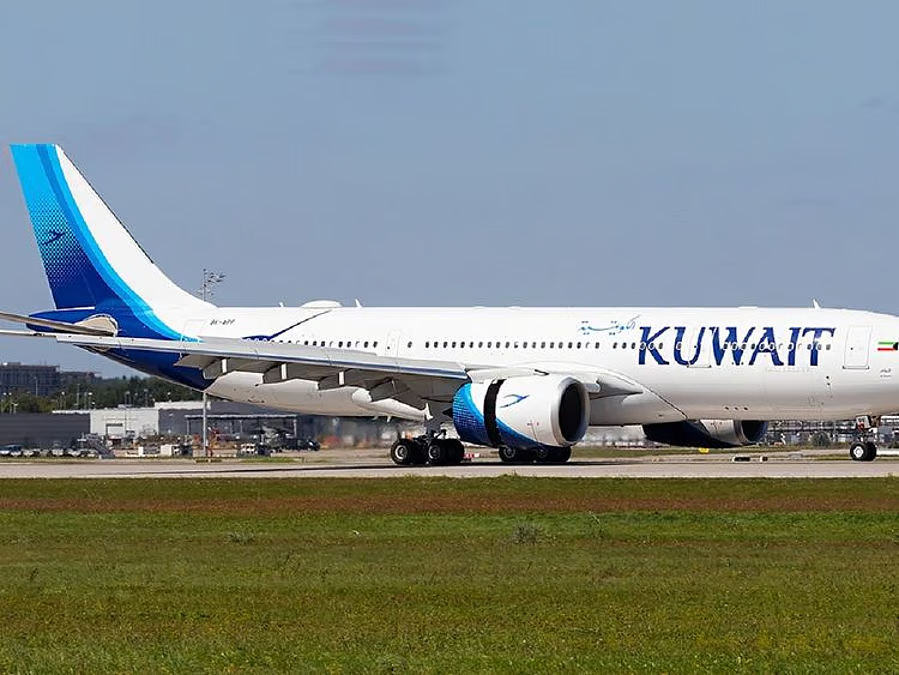In a significant move to strengthen bilateral ties, India and Kuwait have expanded their aviation Pact agreement by 50 percent in July 2025. This development is a major step in enhancing air connectivity between the two nations. The India Kuwait aviation pact aims to meet rising travel demand, support tourism, and foster business exchange.
The newly revised air services agreement will increase weekly flight frequencies, provide more options for passengers, and help airlines serve both Indian and Kuwaiti cities more efficiently.
According to the Ministry of Civil Aviation of India, this expansion marks a strategic milestone in diplomatic and economic relations with Kuwait, especially as demand for travel continues to rise post-pandemic.
Why Was the Aviation Pact Expanded?
The India Kuwait aviation pact was last reviewed several years ago, and since then, air travel between the two countries has increased rapidly.
Here are some reasons behind the expansion:
- Increased Travel Demand: Over 1 million Indians reside in Kuwait, and thousands of Kuwaiti nationals visit India every year for tourism, education, or medical purposes.
- Limited Flight Capacity: The previous pact allowed for limited weekly flights that were not enough to meet current demand.
- Bilateral Growth: Both governments have been working towards improving trade, tourism, and people-to-people contact.
With this expansion, airlines from both sides will now be allowed to operate up to 50% more flights, enabling more direct routes and reducing flight delays and congestion.

Key Features of the Expanded India Kuwait Aviation Pact
The revised aviation agreement brings a host of new features that benefit airlines, passengers, and governments.
Here are the major highlights:
- 50% Increase in Weekly Flight Entitlements
Airlines from India and Kuwait can now operate a higher number of flights weekly. This ensures less congestion and better ticket availability. - More Cities Covered
More Indian and Kuwaiti cities are now eligible for direct flight routes, promoting regional connectivity. - Open Skies for Some Routes
On selected city pairs, the open skies clause will apply. This allows unlimited frequency and capacity, especially for destinations with high demand. - Improved Cargo Capacity
Cargo flights are also included in this expansion, helping both countries trade goods faster. - Airline Code-Sharing
Indian and Kuwaiti airlines can now enter into code-sharing agreements with third-country carriers. This enables smoother transit for international travelers.
What This Means for Passengers
The India Kuwait aviation pact expansion comes with several benefits for passengers. If you frequently travel between these countries, here’s what you can expect:
- Lower Airfare
More flights usually mean more competition, which may lead to lower ticket prices. - More Travel Options
Flights will be available at more times and on more days, making scheduling easier. - New Destinations
Cities that previously had no direct connection may now have nonstop flights. - Improved On-Time Performance
Reduced congestion on popular routes should improve punctuality. - Faster Cargo Delivery
Increased cargo flights will help industries receive goods faster, reducing delays in medical supplies and trade products.
Economic Impact of the Expanded Aviation Deal
The aviation sector is not just about flights it deeply affects the economy. This India Kuwait aviation pact expansion could lead to:
- Increased Tourism Revenue
More flights make it easier for Kuwaiti tourists to visit Indian destinations like Kerala, Goa, and Delhi. - Job Creation
With increased air traffic, more airport, airline, and hospitality jobs will be created in both countries. - Boost to Medical Tourism
Many Kuwaitis travel to India for affordable and quality medical care. Easier connectivity will support this sector’s growth. - Trade Growth
Better cargo services mean faster delivery of pharmaceuticals, electronics, and textiles. - Education Sector Benefits
Easier access to Indian universities will attract more Kuwaiti students.
Statements from Indian and Kuwaiti Officials
India’s Civil Aviation Minister said:
“This increase in flight entitlements under the India Kuwait aviation pact is a landmark moment. It will not only ease travel but also deepen the trust and connection between our peoples.”
Kuwait’s Directorate General of Civil Aviation (DGCA) added:
“India is a vital partner for Kuwait. Expanding this air agreement shows our commitment to strengthening bilateral ties across all sectors.”
Both sides also agreed to meet again within the next year to assess the progress and explore future expansions.

Which Airlines Will Benefit?
Several Indian and Kuwaiti airlines are likely to benefit from this aviation agreement:
- From India: Air India, IndiGo, Vistara
- From Kuwait: Kuwait Airways, Jazeera Airways
These carriers will now have the freedom to schedule more flights, connect new city pairs, and offer promotional fares.
Additionally, both governments have permitted these airlines to enter into code-sharing and interline agreements, making travel smoother for connecting passengers.
What’s Next After the 50% Expansion?
The India Kuwait aviation pact is likely to be further expanded if the demand continues to rise. Officials from both countries are monitoring ticket sales, airport operations, and cargo trends to prepare for a future agreement that could include:
- Complete Open Skies
For all major airports in both countries, with no limit on frequency or capacity. - Joint Ventures
Between airlines of both countries to improve service quality and route coverage. - Digital Collaboration
Including shared e-visa processes for smoother entry and exit, especially for medical and student visas.
Passengers and Industry Experts React
Travelers and industry experts have welcomed this move.
A frequent flyer between Mumbai and Kuwait said:
“Getting tickets was a nightmare during holiday seasons. I’m glad more flights will be available.”
An aviation analyst added:
“This expansion is smart and timely. It will reduce airfare pressure and attract more business travellers and tourists.”
How This Move Fits in Global Aviation Trends
The India Kuwait aviation pact expansion reflects a broader trend in international aviation:
- Post-COVID Recovery
Countries are actively working to increase air routes to boost tourism and revive economies. - Regional Airspace Liberalisation
Many Gulf and South Asian countries are signing flexible agreements to increase air traffic. - Passenger-Centric Policies
Governments now prioritize passenger convenience and industry collaboration more than before.
This new agreement is in line with India’s larger aviation diplomacy strategy under the UDAN International vision to improve global air accessibility.
Final Thoughts
The 50% expansion of the India Kuwait aviation pact is a win-win for both countries. Whether you are a tourist, student, business traveller, or part of the Indian diaspora in Kuwait, this move will make travel more affordable, faster, and convenient.
With diplomatic and economic cooperation at an all-time high, this aviation deal not only improves connectivity but also symbolises a stronger, more connected future for India and Kuwait.
Both governments have emphasised that this is not the final step but just the beginning of a larger vision to build seamless travel infrastructure across Asia and the Middle East.
Do follow Gulf Magazine on Instagram
Also Read – Kuwait Oil Price Falls by 13 Cents to $71.29 per Barrel



